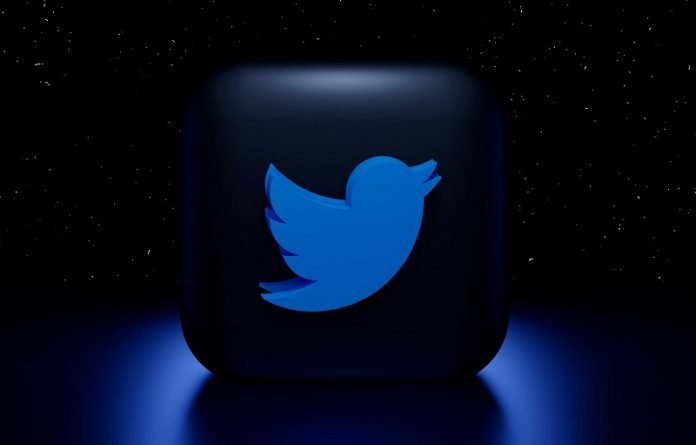
Since Elon Musk purchased Twitter for $44 billion on Oct. 27, speculation about how the short-form text-based platform will change has run wild.
Will Musk work to curb hate speech and misinformation on the platform?
Will he charge users a subscription fee? Will there be layoffs? And, perhaps most saliently, will Twitter survive the change-of-hands against the backdrop of years of unprofitability?
One answer came Friday.
As Twitter contends with a decline in revenue this year, Musk reportedly started layoffs Friday that could reach as high as 50% of staff.
Also, Musk has hinted at charging its users a subscription fee in an effort to combat shortfalls. In a tweet Friday, Musk blamed the revenue drop on “activist groups pressuring advertisers.”
Depending on who you ask, Musk’s takeover signals doom and gloom or, conversely, the prospects of a return to profitability.
Musk, the world’s richest man, is as mercurial as they come, adopting right-wing talking points and, on occasion, fueling misinformation (on Twitter, no less) in ways that have damaged his reputation.
At the same time, he’s expressed a desire to improve the platform and turn it into a place that fosters healthy debate and open speech—a “virtual town square,” where everyone should be permitted to voice their opinion.
John Wihbey, associate professor of media innovation and technology at Northeastern, who’s adopted a wait-and-see attitude with regard to the future of the platform, nevertheless admits that Musk’s leadership presents a bit of a “mixed proposition.”
“He’s at once a business genius and a slightly unhinged publicity hound, who is a serial entrepreneur with a lot of street cred,” Wihbey says. But, he adds, Musk has “a track record of innovating in really interesting ways.”
“As much of a clown show as Elon has been, his businesses are pretty well-run,” Wihbey says.
It isn’t yet clear, Yakov Bart, associate professor of marketing, and Joseph G. Riesman, research professor, says, if Musk’s acquisition of Twitter will payoff in the short or long-term.
“Going off of some of his actions and statements, it’s not entirely clear if making Twitter profitable is even a priority right now,” Bart says. “However, if we want to assume this, then the key would be to figure out a working business model that may allow Twitter to continue making money.”
Fundamentally, any social media platform makes money by charging its users who interact with the platform, or by charging advertisers by selling them the attention of its users, Bart says.
The bulk of Twitter’s revenue has historically come from advertising, with the rest coming from “data licensing” and other services.
Musk has signaled a desire to move away from the heavy advertising model, believing, rightly or wrongly, that its millions of users represent a largely untapped revenue stream.
“It seems that Elon has this impression that people are deriving a lot of value from Twitter. That’s a hypothesis he can test as owner of the platform,” Bart says. “But the evidence is not entirely clear.”
Musk has floated plans to charge users a monthly fee to keep their “blue check mark,” a marker on accounts used to verify more high-profile accounts.
The idea received swift backlash from users of all stripes, not least because, Bart says, it isn’t exactly clear how much people valued having such a check mark in the first place.
“He may end up extorting more money from users by delivering similar if not worse value,” Bart says.
“The danger of putting some kind of paywall, requiring all users to pay, would be that potentially the company would find itself in a downward spiral, with fewer people coming in because of obstacles such as monthly payments,” Bart says.
That move, in turn, might make advertisers think the platform is less attractive. On top of that, Twitter has also always been home to marginalized groups and others who’ve been economically disenfranchised—users who may not be able to absorb costs.
Brooke Foucault Welles, associate dean for research and associate professor of communication studies at Northeastern, argues that Twitter has long been a haven for voices excluded from mainstream airways.
More than just a platform to shout opinions and share memes, the Twittersphere has nurtured political movements and progressive social causes. It holds the keys to “transformative change,” in particular change “advocated for and agitated for” by marginalized groups, in particular, Welles says.
“These are groups who don’t have access to other forms of media or the seats of power,” Welles says. “That is people of color, people with disabilities, queer folk and, to some extent, women.”
Twitter’s early functionality made it a useful tool for the historically underrepresented. It had almost no use barriers, Welles says; the character-limited text exchanges could be executed on low-cost mobile phones, whereas platforms like Facebook required pricer gadget support.
As a result, she says, the early Twitter population skewed more heavily representative of people of color.
“It has always been a place for the Black community to gather and express ideas, and that ethos and that sensibility about it continues to be there,” Welles says.
Can Musk maintain these communal spaces, or has his reputation already preceded their flight from the platform? The perception of the controversial billionaire, and the public’s read on what he might do next, could be the platform’s undoing, Welles says.
“Just the perception that it’s no longer a useful platform or a viable platform alone will damage the ability for people to harness it to create this collective action,” she says.
“These social movements depend on numbers, and sympathetic people being there. So if folks who are more progressive, more interested in authentic deliberation are more supportive of racial and gender justice causes—if they think that something bad is going to happen and they leave, then it becomes this self-fulfilling prophecy.”
On “Black Twitter,” users have been talking about whether to leave the platform since Musk gained control.
“From what I have seen and read, I don’t believe Musk’s vision for Twitter considers how marginalized groups are targeted and harassed,” Shane Paul Neil, a journalist and Twitter user, told News@Northeastern.
“From where I stand, Musk’s version of freedom of expression means freedom from the ramifications of that expression.”
Neil adds that “Twitter has always been hostile to outspoken members of marginalized groups.”
“Because like so many things, while we were key stakeholders in helping this platform take off in the manner it has over the last decade, we are the last ones considered in times of pivotal shifts,” Neil says.
Written by Tanner Stening.



